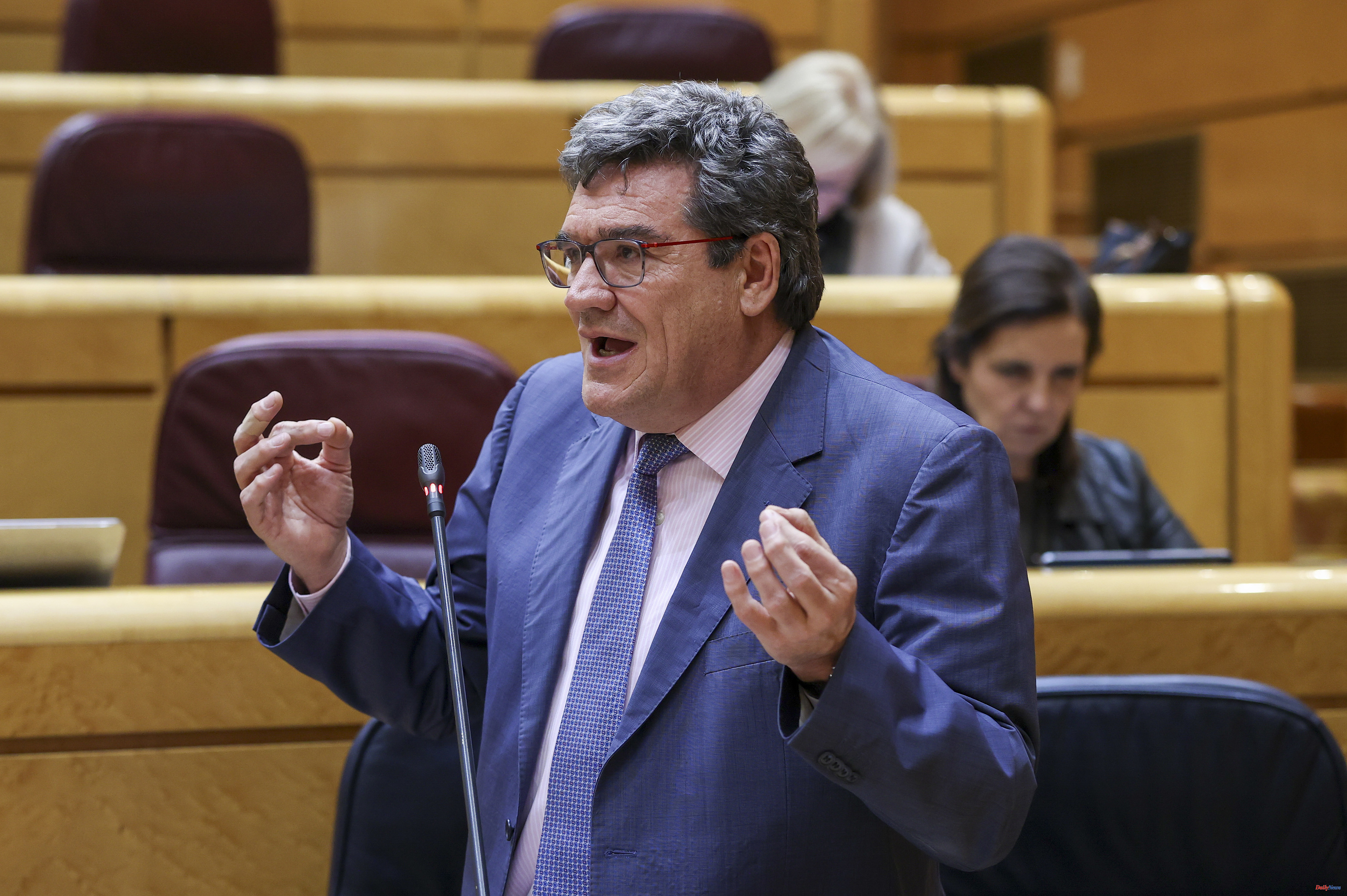The Government has announced that it already has the approval of the European Commission for its proposal for the second part of the pension reform and has summoned the unions and employers this Friday to try to reach an agreement with them based on that document.
This was announced by Minister José Luis Escrivá this Thursday in a forum in El Español, where he indicated that there is already "practically an agreement" for the pension reform after the "deep discussion" held with the community institutions, and that It has already cited the UGT, CCOO, CEOE and Cepyme to try to get their approval. "I hope it happens tomorrow," he confided.
Negotiation sources have confirmed to EL MUNDO that they have already received the call from Social Security and that they will attend the meeting tomorrow. The meeting will take place at 12:30 p.m. at the Ministry's headquarters.
The Government seeks a consensus as soon as possible in social dialogue - three-way is already ruled out, so at least with the unions - to approve the reform by royal decree in one of the next Councils of Ministers and that it can be validated in Congress before Easter, which starts at the beginning of April. Once the agreement is reached, Escrivá also plans to go to the Toledo Pact Commission to inform his deputies, something that they have been demanding for a long time when they feel separated from the reform.
The Executive is in a hurry to carry out the reform since it accumulates a delay of two months with respect to the commitment it had with Brussels. In the Recovery Plan, the Ministry promised to approve the reform before December 31 and the next disbursement of European funds - the fourth that Spain will receive - is linked to the fact that this reform is in force.
The problem is that reaching consensus is difficult, especially since the government needs it on three fronts. On the one hand, with the European institutions, which seem to have already given the go-ahead to the set of measures proposed by Escrivá -those already approved, which increased spending, and the proposals now, to compensate for this imbalance-; the parliamentary arch, where they have had to ensure that what has been committed to Brussels has sufficient support to be approved, and finally the social agents, who must put their stamp on the reform.
At that table, there are two very distant positions. From the beginning, the employers have opposed the Government's proposals, which go through guaranteeing the sustainability of the pension system, acting fundamentally through income, that is, increasing the contributions of the companies and without making any containment through the spent. This opposition has led CEOE and Cepyme to remain practically on the sidelines of the negotiation.
Escrivá, therefore, has focused on dialogue with those with whom there was a possibility of an agreement, the UGT and CCOO, although they have insisted from the beginning that, before negotiating, the Ministry must have political support and backing from Brussels. Even so, the unions showed their cards from the beginning: they opposed the extension of the calculation period to calculate the pension (something that Escrivá had promised the Commission on its own, without expressly appearing in the recommendations of the Pact of Toledo and which, in theory, had no impact on the costs of the system) and also made their list of requests.
The latter, which included a more flexible minimum contribution period to access the pension, have been interpreted as a possible bargaining chip for the unions to end up accepting a modification of the calculation period.
Developing this second part of the reform has been -is being- much more difficult than with the first, because nobody wants to eat a plate of vegetables after having started with ice cream. The Government decided to divide its reform into two parts instead of making a comprehensive one. In the first part, he focused on protecting the adequacy of the system, with measures such as the revaluation by law of pensions according to the CPI, which supposes a very strong tension on the spending side that adds to the pressure exerted by aging and the substitution effect. Every month Social Security is already disbursing almost 12,000 million euros in pensions and that bill will go up more and more.
Once that part was approved, which no party or interlocutor could deny due to the electoral cost it would have had, came the complicated part: approving measures that would compensate for this increase in spending. Three things could be done: cut other expenses to compensate, increase income or a mix of both, as requested by Brussels. The objective is to control the Social Security deficit, which this year will need a current transfer from the State of 38,700 million euros to meet its expenses.
Although the European Commission accepted that the reform be divided into pieces and did not put any problem with the measures approved in the first part, it did warn that they would evaluate the joint impact on the sustainability of the system when the Government had finished approving all the planned changes. "We will evaluate with the Spanish authorities the sustainability of their pension system in 2023," Paolo Gentiloni, Commissioner for Economic Affairs, made clear in an interview with this newspaper in May of last year.
And that is what they have been doing for several months: studying the set of approved measures and the counterweight effect of those that the Executive wants to approve now, to ensure that the system will be sustainable in the long term.
Over the course of this time, the Ministry, the social agents and the parties have been reporting different measures that were included in the reform and, at the same time, different experts have been warning that they did not sound sufficient to compensate for the hole in the system .
According to the criteria of The Trust Project












